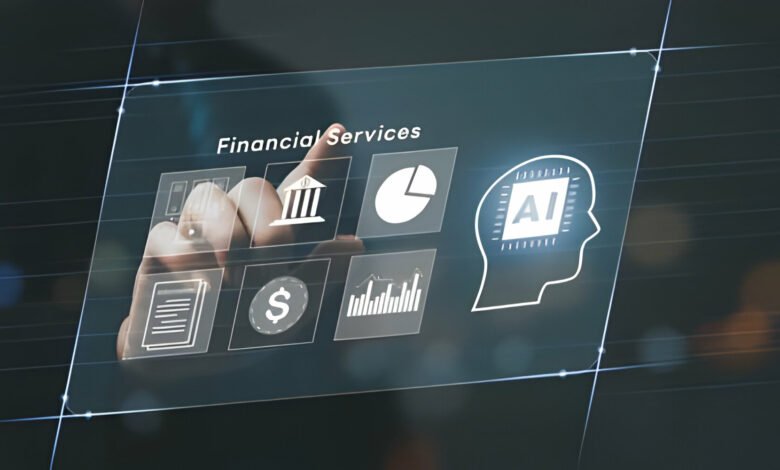The Role of Emerging Technologies in Fintech Development Services

The Cutting-Edge Technologies Revolutionizing Fintech Services
The financial industry is increasingly shaped by emerging technologies that streamline operations, enhance customer convenience, and open new revenue streams. For fintech development companies, staying ahead with advanced solutions that cater to evolving consumer needs is crucial for maintaining a competitive edge.
Key Technologies Reshaping Fintech Services
Fintech utilises a variety of technologies to simplify financial transactions and enhance user convenience. Choosing the right e-wallet app development service is critical for seamless payments. Let’s explore some pivotal technologies that are making a significant impact in the fintech sector.
Artificial Intelligence (AI) in Fintech
Automated Customer Service: AI-powered chatbots and virtual assistants are transforming customer service in financial technology by providing tailored assistance, streamlining customer queries, and enhancing user experiences. For example, Bank of America uses its virtual assistant Erica to help customers with a wide range of banking services, from checking account balances to making payments.
Risk Management: Fintech firms employ AI to swiftly analyse vast data sets to detect potential fraud and make informed lending and credit risk management decisions, thus minimizing financial risks and ensuring equitable customer treatment. Companies like Zest AI leverage machine learning to create fairer credit underwriting models, ensuring better decision-making processes.
Algorithmic Trading: AI-driven programs conduct financial market trades based on specific rules and trends, enhancing trade accuracy and enabling fintech firms to capitalize on market opportunities promptly. QuantConnect provides a platform for algorithmic trading that allows users to develop, test, and deploy trading algorithms.
Blockchain Technology
Enhanced Security: Blockchain technology enhances the security and trustworthiness of digital transactions on fintech or ecommerce platforms, functioning as a decentralized digital ledger of all transactions. Companies like Coinbase ensure secure cryptocurrency transactions using blockchain’s immutable ledger system.
Smart Contracts: These automated agreements require no intermediaries, thereby speeding up and economising transactions for everyone involved. They are extensively used in finance for managing loans, insurance, and tracking goods through production stages. Ethereum is a pioneer in deploying smart contracts, enabling a wide range of decentralized applications.
Tokenization of Assets: Blockchain enables digital representation of asset ownership, allowing more people to invest in assets like property, art, and stocks, thereby democratizing investment opportunities. Platforms like tZERO facilitate the trading of tokenized securities, providing greater access to investment markets.
Internet of Things (IoT) and Fintech
Connected Devices: Devices such as smartwatches and sensors collect data that fintech companies use to tailor their services. For instance, smartwatches might influence how insurance premiums are calculated or help banks offer customized financial products. John Hancock integrates fitness tracking data from wearables into its life insurance policies, offering discounts to active users.
Risk Assessment: IoT devices gather real-time data that, combined with AI algorithms, helps insurance companies create personalized policies based on individual behaviour and risk profiles. This personalized approach is revolutionizing traditional risk assessment models.
Robotic Process Automation (RPA) in Fintech
Streamlined Operations: RPA automates repetitive and time-intensive tasks like data entry and compliance checks, reducing human errors and operational costs. UiPath offers RPA solutions that help fintech companies automate their back-office operations, improving efficiency.
Compliance and Regulatory Reporting: It automates compliance checks and report generation, helping fintech firms stay compliant with regulations and avoid penalties. Blue Prism is a key player in providing RPA tools that ensure regulatory compliance in the financial sector.
Biometric Authentication
Enhanced Security: Techniques like fingerprint and facial recognition not only bolster fintech security but also reduce fraud and identity theft risks. Mastercard uses biometric authentication to enhance security for its cardholders.
Frictionless User Experience: Biometric technologies simplify authentication processes, enhancing user satisfaction and fostering trust in digital financial platforms. Apple Pay and Google Pay’s use of fingerprint and facial recognition for transactions is a prime example of this technology’s impact.
Benefits and Challenges of Emerging Technologies in Fintech
Adopting cutting-edge technologies offers significant benefits by automating processes and personalizing customer interactions. For instance, AI chatbots provide round-the-clock support, enhancing customer service. Blockchain secures transactions and fosters trust among users. Moreover, technologies like cloud computing reduce operational costs by eliminating the need for expensive onsite infrastructure, enhancing service deployment speed.
However, integrating these technologies poses challenges, including the need for updated regulatory frameworks and ensuring data privacy and security. Fintech companies must navigate complex regulations and implement robust cybersecurity measures to protect sensitive financial data.
Future Trends and Opportunities in Fintech Development Services
Looking forward, the integration of AI for risk management and blockchain for secure transactions will dominate fintech innovations. The rise of cloud computing and smarter consumer devices will further enhance financial service delivery. Companies like Stripe are already leveraging cloud infrastructure to provide scalable payment processing solutions, setting the stage for future developments.
Conclusion: The Dawn of a New Financial Era
Emerging technologies are revolutionizing fintech, offering secure, efficient, and customized financial services. As these technologies evolve, they will play a crucial role in shaping the future of the financial industry, marking significant milestones in the fintech landscape. Fintech companies must continue to innovate and adapt to maintain their competitive edge and meet the dynamic needs of consumers in this digital age.




